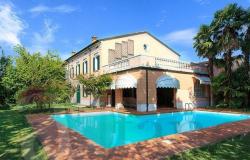 Milan's version of London's congestion tax was put to its first real test on Monday, as most of the city's commuters returned to work after the Christmas break.
Milan's version of London's congestion tax was put to its first real test on Monday, as most of the city's commuters returned to work after the Christmas break.
Despite grim predictions of traffic chaos, there were few problems during the morning rush hour, when 20% of the cars and 38.5% of the goods vehicles entering the restricted area were obliged to pay for the privilege.
There was some confusion over which of the city's 43 entry points were restricted to buses, and the morning traffic started much earlier than usual, as motorists tried to beat the charge's 7.30 am start.
But overall, traffic flowed smoothly, most people having purchased their 'Ecopass' in advance.
''There was no congestion and no traffic jams at the entry points,'' said the city's traffic chief Edoardo Croci at a midday conference.
The scheme, under which motorists pay a tax according to how much their cars pollute, was officially launched last Wednesday, giving authorities three days to iron out glitches before Milan returned to work.
The only real difficulty motorists faced last week was paying for the Ecopass. Both the website and phone line set up for advance payments crashed after being flooded with requests the day before the system came into effect.
But on the basis of the first three days, Milan officials were confident on Monday that the scheme will achieve its goal of reducing traffic pollution.
''Traffic in the city overall was down 31% compared to normal levels, and down around 55% in the Ecopass area,'' Croci said.
Milan is the first Italian city to introduce a pollution tax and the handling of the scheme is being watched closely by mayors in other traffic-clogged cities up and down the peninsula.
Anyone driving a polluting car into the central area without paying the tax - up to 10 euros a day according to how 'dirty' the car is - will be automatically sent a 70-euro fine.
Motorbikes, scooters and new cars respecting the latest EU emission standards can enter for free.
On a normal working day about 90,000 cars go in and out of the centre of Milan. According to studies, once the system is up and running, about 36,000 cars will pay the fee each day.
The system requires drivers entering the designated area between 7.30 AM and 7.30 PM to purchase the Ecopass - either a day ticket or a multi-day pass - in advance or up to 24 hours after entering the centre.
The scheme aims to reduce fine particle PM10 pollution by 30% and cut traffic volume by 10%.
The project, part of a 3.5-million-euro funding deal signed with the central government, has raised some concern in Milan.
Polls indicate support for the underlying goal although the local population is evenly divided on the Ecopass itself.
The Northern League, a centre-right party on the city's municipal council, has fiercely contested the idea, which also involves periodic closures of Milan's historic centre to all traffic.
The scheme is part of a wider drive to improve the city's air pollution and transport. New parking restrictions have also been introduced, as well as 15 kilometres of bus lanes.
The council has also said it is reconsidering previously shelved plans to extend three of the city's metro lines.



